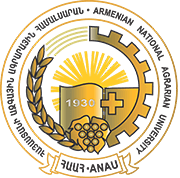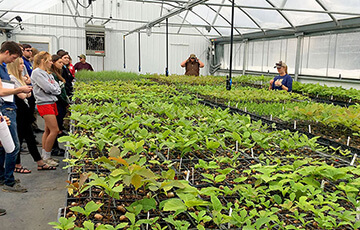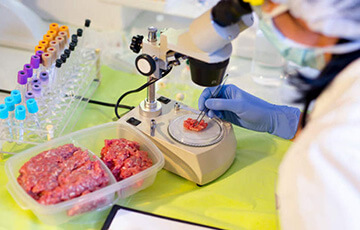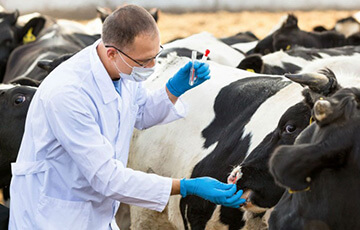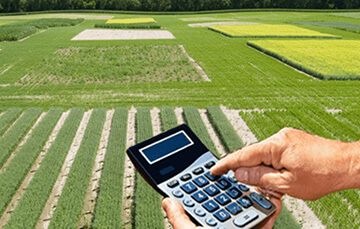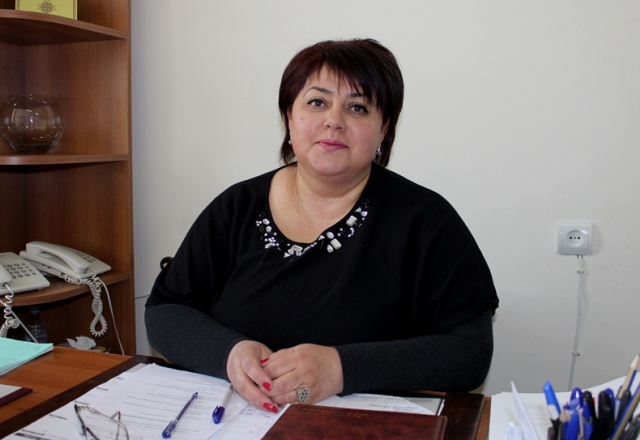
Nune Simonyan
Candidate of sciences, Docent
Chair
Contacts
- 74 Teryan Str., 0009, Yerevan, RA
ANAU, I building , room #105 - (374 12) 56 04 24, Int 3-86, 4-81
- [email protected]
The Chair of Plant Origin Product and Processing Technologies is one of the largest chairs of ANAU, which has its unique place and role in the sphere of food industry development in Armenia.
In 1930 The Faculty of Horticulture was established in the newly established Agricultural Institute. In 1972 The Chair of Winemaking and Canning Technology stood out from the others. It is now considered an issuing chair for three specialties:
- Fermentation Production Technology and Winemaking:
- Food Technology (Canning and Nutrition Technology, Bread, Confectionery and Pasta Production Technology):
- Food Safety.
Students of above mentioned specialty receive actual, theoretical and practical knowledge at the university, in order to present themselves as full-fledged specialists in the production, the great demand which is always present.
The chair cooperates with leading production enterprises. The cooperation is carried out at the level of organizing internships, conducting classes, involving invited specialists in the educational process.
First-year and second-year students, under the guidance of their lecturers, make study visits to factories, acquainted with technological processes and secured with the latest equipment, and they are in production throughout the first term of the 4th year and spend a working term (4 months) according to the curriculum.
Within the framework of this cooperation, the best specialists in the field are invited to discuss with lecturers and students, to conduct seminars and exchange experiences.
After receiving the bachelor’s degree students have the opportunity to continue their studies in the master’s program, during which young professionals develop both technological and research-analytical skills. During this time they have the opportunity to take training courses at a number of higher education institutions, including the universities of Geisenheim in Germany, Tusha in Italy and others.
After graduating the University master graduates can confidently develop the latest technologies, implement them and introduce them to the consumer market.
- Improving the educational process
- Continuous improvement of educational programs:
- Training of qualified specialists with the knowledge of local and international labor market technologies:
- Ensuring education-science relationship establishment during the teaching process:
- Continuous improvement of modern teaching and learning methods:
- Organizing student’s work (hands-on training) term:
- Ensuring the quality of teaching, based on innovative educational technologies, new, updated and replenished logistic base.
- Improving the sphere of science:
- Turning innovative ideas into scientific programs with the help of the teaching staff and ensuring their participation in competitions:
- Ensuring students’ involvement in research activities:
- Increasing publication in scientific journals and participation in international conferences:
- Development of cooperation programs with related chairs and scientific centers,
- Development of measures, aimed at strengthening the education-science-production chain:
- Qualitative improvement of research works:
- Creating favorable conditions for the scientific environment:
- Improving staff qualifications:
- Addition of theoretical and practical trainings for continuously improving the skills of the teaching staff:
- Conducting joint discussions, seminars and exchange of experience with professors and specialists of this sphere:
- International trainings and exchange of experience:
- Continuous involvement of young and invited specialists:
- Formation of professional groups within the chair:
- Improving foreign language and computer skills:
- Creating a student-centered environment:
- Maintain the teacher-student joint working relationship:
- Continuously conduct extracurricular meetings and discussions of the profession coordinators and students:
- Engage the students in individual and research works:
- Improving international cooperation
- Ensuring participation in Erasmus +, Temus and other programs:
- Constant benchmarking with the outside world, which will enable you to be aware of best practices.
Two laboratories were opened next to the chair: “Brewing and distilling educational-experimental laboratory” and “Educational laboratory of bread, confectionery and chocolate making”, where short-term courses are conducted.
Chair Staff
- Hasmik Ter-Movsisyan – Candidate of sciences, Docent
- Heghine Mkhitaryan – Candidate of sciences, Docent
- Epraksia Gomtsyan – Candidate of sciences, Docent
- Arusyak Hakobyan – Candidate of sciences, Docent
- Hayastan Hakobyan – Candidate of sciences, Docent
- Armenuhi Petrosyan – Candidate of sciences, Docent
- Narine Karapetyan – Candidate of sciences, Lecturer
- Lilia Samvelyan – Candidate of sciences, Lecturer
- Aghavni Fahratyan – Candidate of sciences, Lecturer
- Narine Hovhannisyan – Candidate of sciences, Lecturer
- Naira Yavruyan – Candidate of sciences, Lecturer
- Hripsime Javadyan – Assistent
- Stella Hovsepyan -Assistent
- Meri Vardanyan – Assistent
- Ruzanna Hayrapetyan – Assistent, Specialist
- Elina Grigoryan – Assistent, Specialist
- Nelly Davdyan – Specialist
- Greta Iskandaryan – Assistent, Specialist
- Armen Solomonyan – Assistent
Subjects
Thermal processes
Fermentation technology
Wine Chemistry
Wine technology – 1,2
Sensory estimation
Expertise of wines
Production sanitation and hygiene
Wines of the world
Brandy making
Compliance assessment
Technological design of wineries
Organic winemaking
Technology of non-alcoholic beverages
Strong alcoholic drinks
Fruit vodkas
Processing of secondary raw materials
Nutrition technology
Food preservation technology
Plant origin food technology
Food additives
Food safety management systems
Food laboratories
Risk analysis
Waste-free production
Professional introduction
Technology of obtaining raw materials
Technology of processing raw materials of plant origin
Food chemistry
Production of bread and pasta
Production of cans and concentrates
Confectionary production technology
Fruit-berry Canning
Infant and functional food technology
Production of dried fruits, chips and sticks
Production of teas and waters
Food manufactory design
Refrigeration processing and preservation
Production of chocolate
Quality management systems
Processing and packaging of grain food
Technology of curative-preventive food production
Product identification and falsification
Improvement of food technologies, additives in food industry
Secondary raw materials processing technologies
Product documentation
Enology– 1,2
Sensory estimation of wine
Laboratory testing of wine
Production of alcoholic beverages
Nutrition and food biochemistry
Food production
